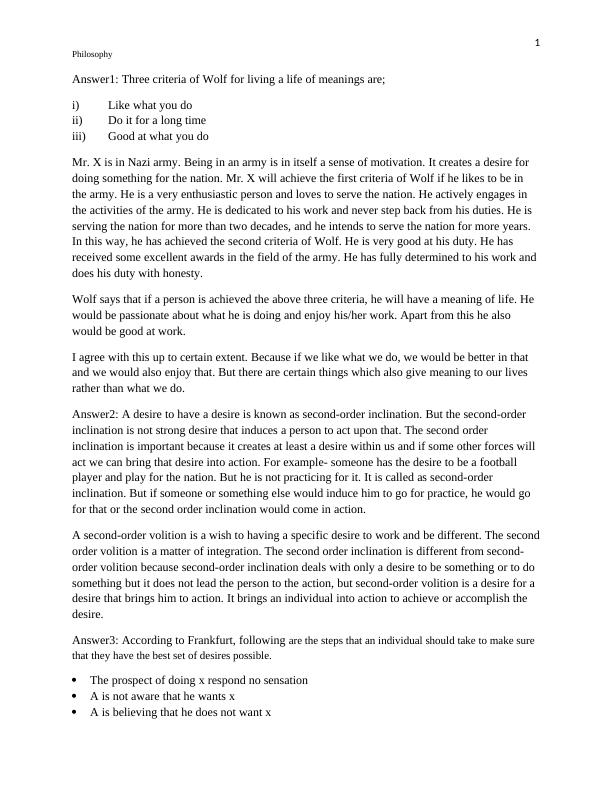Ask a question from expert
Criteria of Wolf for Living a Life of Meanings, Second-Order Inclination and Volition, and Frankfurt's Steps for Best Set of Desires
4 Pages833 Words146 Views
Added on 2019-09-30
About This Document
This article discusses the three criteria of Wolf for living a life of meanings, second-order inclination and volition, and Frankfurt's steps for the best set of desires. It also includes examples and personal opinions.
Criteria of Wolf for Living a Life of Meanings, Second-Order Inclination and Volition, and Frankfurt's Steps for Best Set of Desires
Added on 2019-09-30
BookmarkShareRelated Documents
End of preview
Want to access all the pages? Upload your documents or become a member.
Kant's Categorical Imperative and Natural Law Theory: Analysis of Virtue and Ethics
|10
|2421
|309

